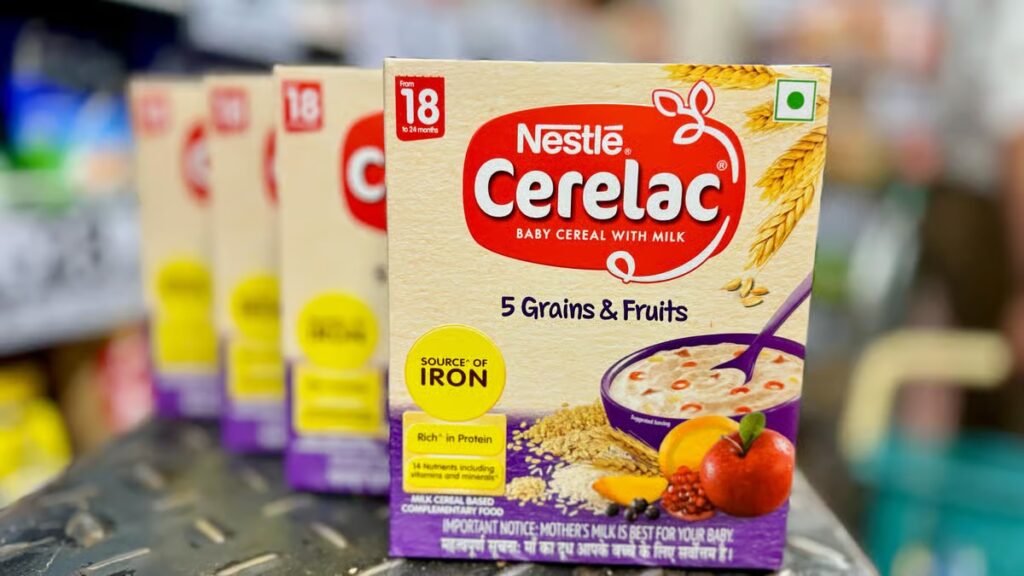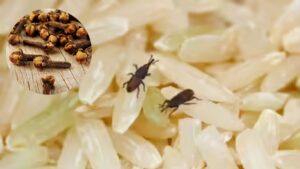NGOs Demand Legal Action By Swiss Govt Against Nestlé For Alleged Cerelac ‘Scam’

NGOs Demand Legal Action By Swiss Govt Against Nestlé For Alleged Cerelac 'Scam'
In April, these organisations took a significant step by filing a formal complaint with SECO, demanding legal action against Nestlé under Article 10 of the Federal Act against Unfair Competition (UWG).
14 June 2024
By Ishika Kumar
Nestlé, a global food giant, has once again found itself embroiled in controversy over its widely sold baby food product, Cerelac.
Civil society organisations Public Eye and the International Baby Food Action Network (IBFAN) have formally requested the Swiss State Secretariat for Economic Affairs (SECO) to initiate legal proceedings against Nestlé, accusing the company of engaging in unethical and unfair business practices in low and middle-income countries.
The Double Standards
The core of the controversy lies in the accusations of “double standards” by Nestlé. According to the NGOs, Nestlé’s Cerelac and other baby food products sold in developing countries, such as India, contain high levels of added sugar.
This practice, the organisations argue, contravenes World Health Organization (WHO) guidelines which discourage the addition of sugar in infant foods. The NGOs allege that while Nestlé maintains stringent standards in Switzerland, it allows higher sugar content in products sold abroad, particularly in poorer countries.
Public Eye and IBFAN have condemned Nestlé’s marketing tactics as misleading and aggressive. They claim that the company’s promotional strategies not only misinform consumers but also compromise their freedom of choice.
Furthermore, they argue that Nestlé obscures the true nature and potential dangers of its infant formula products, thereby violating ethical marketing principles.
Demanding Legal Intervention
In April, these organisations took a significant step by filing a formal complaint with SECO, demanding legal action against Nestlé under Article 10 of the Federal Act against Unfair Competition (UWG). This provision empowers the federal government to act when public interest is at stake. The NGOs urge SECO to compel Nestlé to either remove added sugar from all its baby food products globally or, at the very least, to transparently label the amount of added sugar in all countries where its products are sold.
Public Eye emphasises that ceasing these unethical practices is crucial not only for the protection of children’s health but also for maintaining the reputation of Switzerland, Nestlé’s home country.
The organisation insists that the Swiss government has a responsibility to intervene and hold Nestlé accountable for its actions abroad.
Nestlé’s Defence
In response to these allegations, a spokesperson for Nestlé India acknowledged that authorities are currently analysing the company’s infant cereals and formulas sold in India. Nestlé maintains its commitment to regulatory compliance and highlights its efforts to reduce sugar content in its products.
Specifically, the company claims to have cut sugar levels by up to 30% in its baby food products in India over the past five years.
In a statement made in April, Nestlé India’s chairman and managing director, Suresh Narayanan, asserted that Cerelac complies with local food regulations. He noted that the sugar content in Cerelac sold in India is significantly lower than the maximum levels permitted by the country’s food regulator. Despite these assurances, the controversy has not abated, and the call for legal action persists.
Implications
The stakes in this controversy are high, given the substantial market share and financial performance of Nestlé’s baby food segment. Nestlé controls approximately 20% of the global baby food market, which is valued at nearly $70 billion. In 2022, the company reported over $2.5 billion in sales from its baby food brands, with Cerelac and Nido being particularly popular in low and middle-income countries.
Aggressive branding and marketing strategies, combined with the addition of sugar contrary to WHO guidelines, have significant implications for public health. The overconsumption of sugar in infant diets can lead to various health issues, including obesity and diabetes, which are particularly concerning in regions with limited access to healthcare.
The NGOs argue that such practices disproportionately affect vulnerable populations, exacerbating existing health inequities.
Government’s Response
SECO has confirmed receipt of the complaint from Public Eye but has not yet disclosed its course of action. The Swiss government now faces pressure to take a stand against one of its most prominent multinational corporations.
The outcome of this case could set a precedent for how similar allegations are handled in the future, potentially leading to stricter regulations and greater accountability for multinational companies operating in developing markets.
For parents around the world, particularly those in low and middle-income countries, this issue is of paramount importance. The safety and health of their children are directly impacted by the quality and composition of infant food products available to them. As such, the resolution of this controversy will be closely watched by consumers, health advocates and industry stakeholders alike.
In conclusion, the demand for legal action against Nestlé over its Cerelac product marks broader concerns about corporate responsibility, ethical marketing and public health.
As the situation unfolds, it provokes the need for vigilance and accountability in the global food industry, ensuring that all children, regardless of their geographic location, have access to safe and nutritious food.












